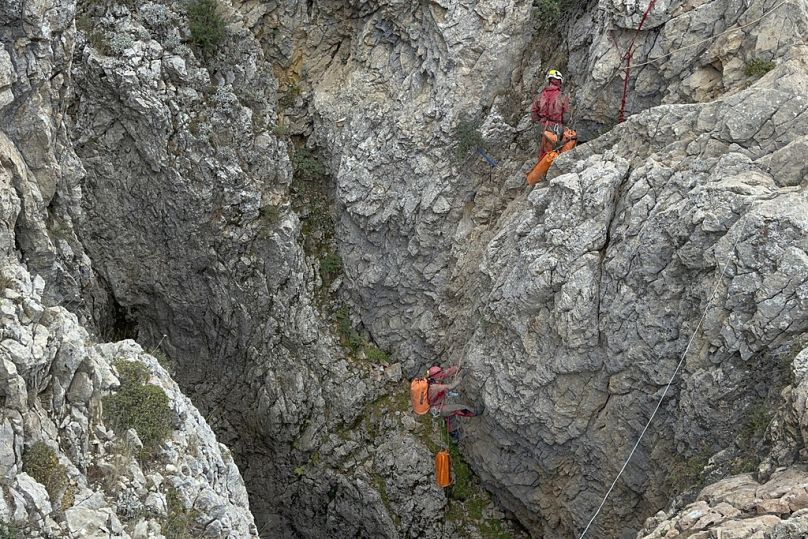American researcher Mark Dickey became trapped in a cave in southern Turkey after suffering gastrointestinal bleeding at a depth of 1,000 metres. International rescue teams are still trying to save him.
Rescue experts from around the world are continuing efforts to save an American researcher who became trapped at a depth of 1,000 metres after falling ill in a cave in southern Turkey.
Experienced caver Mark Dickey, age 40,became unwell while making his descent into Morca cave in the Taurus Mountains.
Unable to leave the cave on his own, Dickey delivered a video message praising the work of rescue teams.
"As you can see I’m up, I’m alert, I’m talking. But I’m not healed on the inside yet so I’m going to need a lot of help to get out of here. This is often in the caving world, a great opportunity to show just how well the international world can work together," he said.
Communication takes about five to seven hours and is carried out by runners, who go from Dickey to the camp below the surface, where wire communication to talk to the surface has been set up.
Rescue teams have reported cold temperatures of between 4-6°C in the cave. Experts say the rescue operation could take days or even weeks depending on conditions.
Rescue teams at the site come from Bulgaria, Croatia, Hungary, Italy, Poland and Turkey. The cave has been divided into several sections, with each country’s rescue team being responsible for one section.












